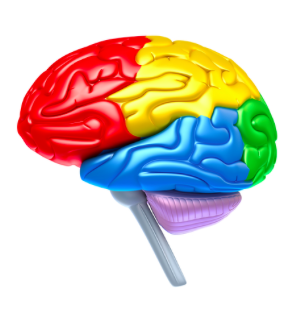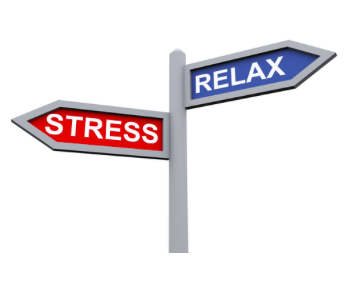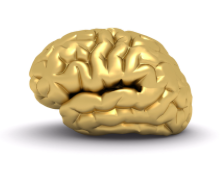Deconstructing Dopamine
In the quest for the perfect physique, hormones often take center stage. Testosterone, estrogen, cortisol, insulin…they get all the glory ...

In the quest for the perfect physique, hormones often take center stage. Testosterone, estrogen, cortisol, insulin…they get all the glory ...
Our eating habits are dictated in part by the intricately-balanced process of hunger stimulation and inhibition which takes place within ...
The Premise With repeated exposure to more and more demanding workouts, our muscles are forced to respond by becoming larger ...
If you’re wondering around the health section at your local grocer, it will be hard not to find a product ...
You often hear the same questions no matter what gym setting you are in. What’s your max bench? What pre-workout ...
Building and maintaining muscle mass while concurrently stripping body fat to reveal the separation and conditioning which defines the elite-level ...
The ability to switch between glucose and fats (our two major energy sources) based on the foods we consume and ...
One of the most frustrating and damaging metabolic conditions a person can have is insulin resistance. On one end, insulin ...
In the pursuit to naturally increase T-levels, many have turned to testosterone boosters. Today we address their validity, while laying ...
In this eye-opening article, Ben gives a breakdown of what cardio ‘actually’ is, and how the application of this newfound ...
There is, without a doubt, a no more difficult area of the body to develop muscle size and strength, than ...
The deadlift may be the most misunderstood exercise in the gym. MI40 Strength Coach Adam Miller drops by to save ...
 In a startling feat of biological engineering, our body must involuntarily produce an array of chemicals to promote specific actions which stimulate cells to adapt. For example, the hormone testosterone is released in response to a biological demand for more muscle mass needed to overcome increasingly more intensive workloads.
In a startling feat of biological engineering, our body must involuntarily produce an array of chemicals to promote specific actions which stimulate cells to adapt. For example, the hormone testosterone is released in response to a biological demand for more muscle mass needed to overcome increasingly more intensive workloads.
Cortisol, our ‘stress’ hormone, is one of the hormones released following perceived threats, to activate our fight or flight response to increase our chances of survival. Indeed, the sheer complexity of the seemingly countless chemical reactions that constantly take place in the human body is such that scientists are far from determining the full extent to which our natural pharmacy controls our myriad biological processes.
Take the delicate interplay between arousal and relaxation, the necessity to at turns become energized to accomplish a task and and at others relaxed to promote recovery, both physical and mental.
While a constant state of high alert and unbridled enthusiasm may, if not balanced with sufficient rest and recovery, lead to mental and physical burnout, on the other hand, an overly laid-back and relaxed demeanor may result in stagnation and little gain. Although there are those that tend to function at either one of these  extremes, such as the perpetually-stressed Type-A-overachiever with the hair-trigger temper, or the sloth-like underachiever with no ambition, most of us navigate life in a more balanced and adaptable fashion.
extremes, such as the perpetually-stressed Type-A-overachiever with the hair-trigger temper, or the sloth-like underachiever with no ambition, most of us navigate life in a more balanced and adaptable fashion.
Included among the many processes responsible for inspiring action and relaxation at adaptive intervals is our dopamine/serotonin system. Unlike the energizing neurotransmitter dopamine, which promotes pleasure-seeking behaviors, and stimulates confidence and aggression, serotonin is a calming chemical, which acting on the central nervous system, produces feelings of pleasure and contentment. [10]
Optimal serotonin secretion also plays an undervalued role in bodybuilding; in particular its effects on a diverse number of bodily systems promote proper digestion, appetite control, sleep, relaxation, mental stability, and increased performance.
The Science
Principally synthesized from the common amino acid tryptophan in the raphe nuclei of the brainstem, serotonin, in addition to regulating mood, appetite, and sleep, also has cognitive functions, influencing learning and memory. [4][10] Serotonin is also produced in the pineal gland of the brain, and the enterochromaffin cells of the gastrointestinal tract. In fact, between 80-90% of our serotonin is localized in the gastrointestinal tract, where it is used to regulate intestinal movements.[9][4] In the central nervous system, serotonin is for the most part neurochemically responsible for modulating other neurons so they do not become overly stimulated. [10] Serotonin (a.k.a. 5-Hydroxytryptamine – 5-HT) is colloquially referred to as our ‘feel-good’ hormone, and this title is well deserved, since chronically low levels of serotonin are thought to be involved in depression. [3] Additionally, because it does not pass the blood-brain barrier, serotonin must be synthesized endogenously.
We seldom correlate serotonin’s benefits with an ability to regulate the intake of food, yet its role in digestion is unmistakable. In fact, without sufficient serotonin, satiety is difficult to achieve, and the foods we do eat will not be properly digested. Whenever we ingest food, serotonin is released to control the contractions that push it through to the small intestine, where nutrients are absorbed and utilized. Serotonin also affects how sensitive our intestines are to feelings of pain and fullness, both of which influence digestion and appetite. [1] Provided our serotonin is optimally balanced, we may experience sound digestion and nutrient absorption, however, if serotonin is too high or too low, we may become constipated or experience diarrhea, and may even wind up with a case of irritable bowel syndrome (IBS).[1]
Appetite Control
An excessive caloric intake can spell disaster for the dieting bodybuilder; adequate levels of serotonin may help curb excessive hunger. For serotonin to be released, the right conditions must be in place. One of these conditions is the intake of sweet or starchy carbohydrates. Whenever we consume carbs, we produce serotonin, which in turn suppresses appetite and restricts further carb consumption (at least this is how it is supposed to work). However, for people who cannot produce enough serotonin, carbohydrates do not have the same appetite blunting effect, and as a result, more carbs are needed to elicit a “normal serotonin response”.
As well as keeping stress levels down and mood sufficiently elevated, serotonin also promotes restful sleep by regulating the sleep/wake cycle (our circadian rhythm). [5] Serotonin levels are at their highest when we are fully awake and aroused, and lowest during the opposite time, during deep sleep. Regulated by sunlight, serotonin is released in waves so as to ensure we fall asleep at the right times and remain alert and vital when awake.
A serotonin imbalance will disrupt this natural pattern and prevent us from getting the revitalizing, restorative sleep we need to recover from intensive training sessions and long days.[9]
How To Boost Serotonin
Enhancing digestion to provide the nutrients needed to train hard and recover following intensive workouts, cultivating feelings of euphoria and enthusiasm necessary for full-force workouts, and aiding sleep so we may experience optimal recovery, all require your serotonin levels to be optimized. The following steps will help you to maximize your serotonin production.
That’s All Folks!
 Of the vast number of unique life-sustaining chemicals circulating in our body, serotonin is one of the more complex and multifarious. In addition to the above-noted functions, serotonin plays a role in breathing and heart rate regulation, and is partly responsible for activating blood clotting mechanisms.[9] Important for lifters, the right balance of serotonin is integral to nervous system function and muscle contraction and growth. [2][6][8][9] If you feel anxious, depressed, or have experienced a reduction in exercise performance, you might consider pumping up your serotonin along with your guns.
Of the vast number of unique life-sustaining chemicals circulating in our body, serotonin is one of the more complex and multifarious. In addition to the above-noted functions, serotonin plays a role in breathing and heart rate regulation, and is partly responsible for activating blood clotting mechanisms.[9] Important for lifters, the right balance of serotonin is integral to nervous system function and muscle contraction and growth. [2][6][8][9] If you feel anxious, depressed, or have experienced a reduction in exercise performance, you might consider pumping up your serotonin along with your guns.
References